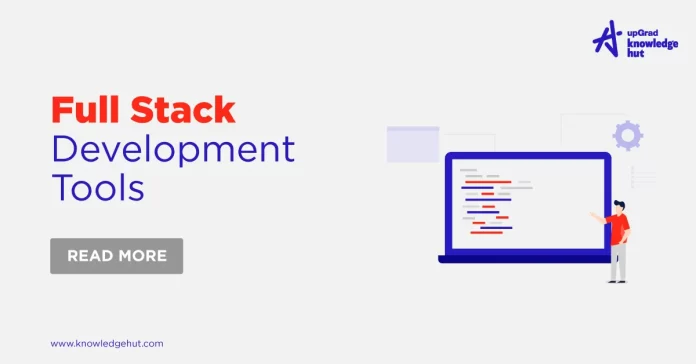In the rapidly evolving field of software development, keeping up with new tools and technologies is crucial for full stack developers. As we venture into 2023, mastering the right set of tools can significantly enhance a developer’s efficiency and productivity. Whether you’re a seasoned professional or a beginner, investing in a comprehensive full stack development online course can give you the necessary skills to excel in this domain. From integrated development environments (IDEs) and version control systems (VCS) to front-end and back-end frameworks, and from deployment tools to testing and debugging utilities, this introduction explores the key tools that full stack developers should prioritize in 2023.
Integrated Development Environments (IDEs) and Code Editors
Integrated Development Environments (IDEs) and code editors are indispensable tools for mastering full stack development. Whether you’re embarking on a full stack development online course or pursuing a full stack online course, understanding and utilizing these powerful software applications can greatly enhance your productivity and efficiency as a developer. IDEs such as Visual Studio Code, IntelliJ IDEA, and PyCharm offer advanced features like intelligent code completion, debugging tools, and version control integration, enabling developers to write, test, and debug code seamlessly. Code editors also provide lightweight and customizable environments tailored to specific programming languages or frameworks. By harnessing the capabilities of IDEs and code editors, full stack developers can streamline their workflow and deliver high-quality applications.
Version Control Systems (VCS) and Collaboration Tools
Version Control Systems (VCS) and Collaboration Tools are essential components in the arsenal of a full stack developer. In today’s fast-paced and collaborative development environment, mastering these tools is crucial for efficient code management and teamwork. Whether pursuing a full stack development online course or a full stack online course, understanding VCS and collaboration tools will empower you to streamline your workflow and contribute effectively to team projects. VCS, such as Git and collaboration platforms like GitHub, provide features like version control, branching, merging, and issue tracking, enabling seamless collaboration, code review, and project management. This introduction sets the stage for exploring the significance of VCS and collaboration tools in the full stack development landscape.
Front-end Development Frameworks and Libraries
Front-end Development Frameworks and Libraries play a pivotal role in the toolkit of a Full Stack Developer. As technology evolves, staying updated with the latest front-end technologies becomes crucial. Whether pursuing a full stack development online course or a full stack online course, understanding and mastering these tools is essential for building modern and responsive user interfaces. Front-end frameworks like React, Angular, and Vue.js provide developers with efficient ways to create interactive web applications. Libraries like jQuery and Bootstrap offer pre-built components and utilities to expedite development. This introduction highlights the significance of front-end frameworks and libraries as indispensable tools for full stack developers in their pursuit of creating cutting-edge web applications.
Back-end Development Technologies and Frameworks
Back-end development technologies and frameworks are crucial in a full stack developer’s toolkit. To master these tools in 2023, aspiring developers can enroll in a comprehensive full stack development or full stack online course. These courses provide a structured learning path to delve into server-side frameworks such as Node.js, Django, and Ruby on Rails. Participants will gain hands-on experience building scalable and secure web applications, understanding database management systems like MySQL, MongoDB, and PostgreSQL. By mastering these back-end tools, developers can effectively manage data, handle server-side logic, and ensure the seamless functioning of their full stack applications.
DevOps and Deployment Tools
DevOps and Deployment Tools are essential components for full stack developers to master in order to streamline the development process and ensure efficient deployment of applications. Aspiring full stack developers can enhance their skills by enrolling in a comprehensive full stack development online course or a full stack online course. These programs cover various subjects, including using tools such as Docker and Kubernetes for containerization and orchestration, Jenkins and Travis CI for continuous integration and deployment, and various cloud platforms for hosting applications. By mastering these tools through online courses, developers can effectively manage the entire development lifecycle, from writing code to deploying and scaling applications, thus becoming proficient full stack developers.
Testing and Debugging Tools
Testing and debugging tools play a crucial role in the arsenal of a full stack developer. As part of a comprehensive full stack development online course or full stack online course, mastering these tools is essential for ensuring the quality and stability of software applications. Full stack developers must be proficient in various testing techniques and utilize tools such as Jest, Selenium, and Cypress. These tools enable developers to conduct unit, integration, and end-to-end testing to identify and fix bugs and ensure code quality. By mastering these testing and debugging tools, full stack developers can deliver robust and reliable applications that fulfil the strictest requirements for functionality and user experience.
Conclusion:
Mastering the essential tools for full stack development is crucial for developers aiming to stay competitive in 2023. By investing in a comprehensive full stack development online course or full stack developer course, individuals can gain proficiency in various tools and technologies that cover both front-end and back-end development. Integrated Development Environments (IDEs), Version Control Systems (VCS), front-end frameworks, back-end technologies, DevOps tools, and testing/debugging tools are all critical components for a well-rounded full stack developer. Keeping up with the latest advancements in these areas and acquiring practical skills through dedicated learning programs will empower developers to tackle complex projects and deliver high-quality, end-to-end solutions in the dynamic world of full stack development.








